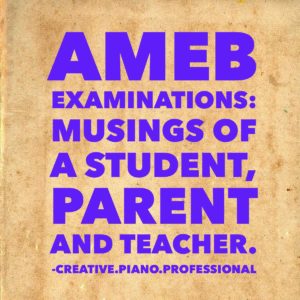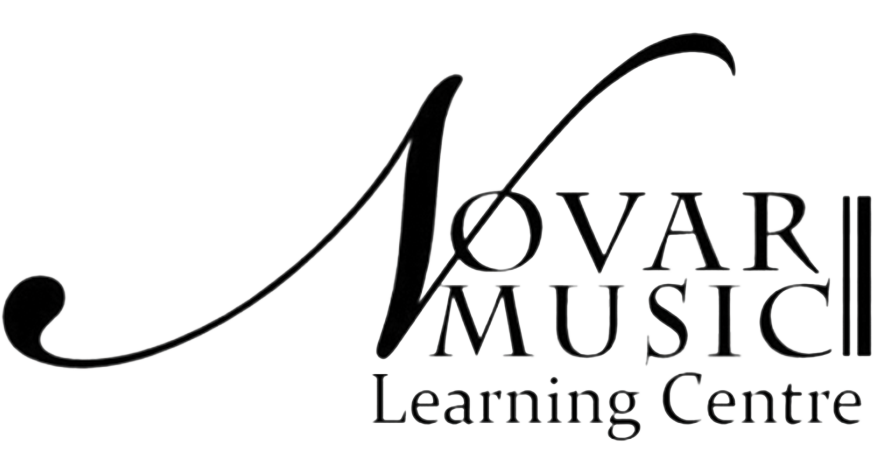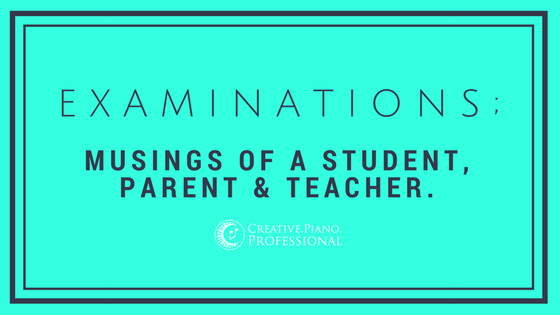Today I have been hosting an Australian Music Examination Board examination session in my home studio. Twenty two students are sitting exams here and it is something we do every year at this time.
I grew up participating in AMEB examinations on a regular basis. It is a system I am very familiar with and enjoyed participating in as a student. I have had students sitting AMEB exams now for a decade and have learnt quite a bit along the way. Pitfalls and quirks of the system. Certain things set students up well and other things aren’t as helpful. One of the things that I have learnt to do is provide the exam facility.
In South Australia there are several sessions throughout the year that students can undertake exams with the AMEB. In May and November each year they offer exam sessions in teacher studios if there are at least two hours of examination time available.
I like to offer these sessions to my students. Rarely do my students prepare for the examination sessions at a central location (at a university in the city.) Having the exam in a location students are familiar with has been beneficial in calming their nerves. Parents are also familiar with finding the venue and parking is easier. Students play an instrument they are familiar with, even if they haven’t been taught on this instrument, they often come to performances parties or panel performances here throughout the year.
Overall, students (and parents) seem more relaxed in the studio atmosphere, helping students perform better and have a positive learning experience. That is my reasoning behind opening my studio up for a day of exams. From a teaching perspective it means that I can create a calm familiar environment for my students. It does mean an unpaid day supervising the exam session. I’m okay with that. The outcomes for my students are worth the time I put into supervising the session.
In this session thirteen of my students are being examined in addition to other students from my colleagues. Having thirteen students ready for examination for the one session has proven to be stressful. Trying to ensure that all of their learning and performance is optimal for a particular date can be very complex.

What is involved in an AMEB piano examination?
Students are examined on a set range of technical work for their grade, they present between 3-6 pieces (depending on the grade level), tested on aural skills, sight reading and general knowledge within their pieces. For more specific information about AMEB examinations head on over to the AMEB website.
So how do I prepare candidates?
Firstly, it is not the only material they study in the year. An exam syllabus is not a teaching curriculum. When a student is ready to commence pieces on the exam syllabus they will begin learning them in addition to other material. Then the remainder of the required pieces are added as the student progress’. Throughout all of this time they are also developing elements of technique, theory, aural, sight reading and technical work. As the examination date is set months in advance, my students continue to learn new pieces and then just choose their best for examination. This ensures pieces are well known but haven’t become stale, they also haven’t become stuck playing the same 3-5 pieces for months on end. Many of the additional pieces they learn will be from grades below their examination grade (in a similar fashion to the 40 Piece Challenge). If students choose to play a piece they had polished previously then they begin working with it again a few weeks out from the exam date just to ensure it is again at performance standard.
This session, one student began learning an exam level piece four weeks prior to examination, just as an additional piece because she was ready for another challenge. Today she ended up presenting that piece as it was at performance standard and she preferred it to the piece she had intended to initially use.
In typing all of this I am thinking about the ideal situation. This is what happens with my students who are completely on track and have regular, effective practice routines. Preparing these students for examination is quite a smooth process. But this is not necessarily the case for all students. Some are really pushing to be ready in time for examination. For these students, there aren’t as many additional pieces and keeping them on track is more difficult and at times stressful for the student, parent and teacher. Over time I have learnt to gauge when a student is actually ready to commence exams. I generally expect them to be further along than I previously did. Students learn many pieces at their grade standard and levels below that to ensure that they truly have the skills required to create a firm foundation. Examination is only one tool used as a part of their overall learning plan.
Earlier this year my daughter sat for her for AMEB exam, allowing me a whole new insight into the parent angle of examinations. There are many different tangents I could address about examinations. But I shall refrain for the moment. For today it is just about what has been going on in the lead up to this session of examinations for my students.
And as the day of examinations draws to a close, I am so proud of my students and their achievements today. I’m also excited about the next adventure we embark on in lessons over the coming weeks. These students know that with diligent effort they can play beautiful things and are motivated to play more music before the long Summer holidays!



Thank you for how well you prepared Tessa for her exam. She was so relaxed about it and I am sure it is because of her experience with ballet, tap and jazz exams, and the preparation with you helping her to feel confident. I had my Yr 12s sit their exam yesterday and I often wish they had started in primary school to see how non-stressful it can be!
It was absolutly my pleasure Sarah! She was so chuffed when she walked out of the exam. And you are right, learning that exams aren’t scary from a young age helps establish great habits for later in life.
I hope your year 12s did a great job yesterday.
I think it’s really lovely that you can offer this service to your students. I’m sure they’re very grateful.
I haven’t done any musical exams before but I know whenever I have to ‘prove my knowledge’ of something, I always perform much better in familiar surroundings and with familiar people. That comfort can really help with the nerves. It’s also great because you absolutely know for a fact that you can do it, because you’ve done it before in that very environment. It’s the ultimate in visualising a positive outcome!